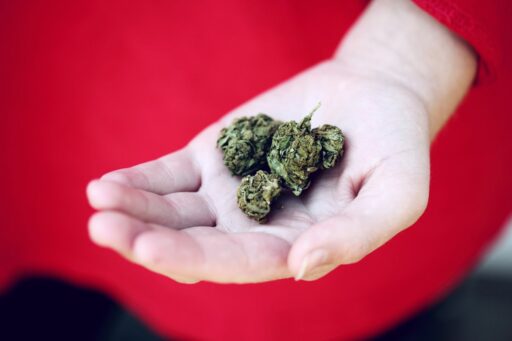Exploring the complex tapestry of cannabis laws in Texas, this article delves into the state’s current stance on marijuana legalization. With a focus on legislative updates, market trends, industry challenges, public perception, and regulatory compliance, we uncover the multifaceted narrative of cannabis in the Lone Star State as of 2023.
Key Takeaways
- Despite significant legal developments in cannabis law, Texas has yet to pass any major marijuana legislation in 2023.
- The explosion of hemp-derived product sales in Texas, including Delta-8 THC, raises questions about legal interpretations and enforcement.
- Innovative uses of hemp, such as building with hempcrete, are emerging in the industry, reflecting a sustainable shift in cultivation and business practices.
- Public opinion in Texas is shifting, with declining treatment rates for cannabis use disorder possibly indicating a broader acceptance of marijuana.
- Regulatory enforcement varies, with hemp shop raids and the DEA’s new rule on Delta-8 THC highlighting the ongoing challenges of navigating state and federal cannabis laws.
Legislative Landscape: Texas Cannabis Law in 2023

Year in Review: Legal Developments and Trends
The year 2023 marked a significant period for Texas cannabis law, with a series of legal developments that have shaped the industry’s trajectory. Despite the absence of new legislation, the legal landscape has been influenced by various factors, including national hemp litigation trends and local enforcement actions.
The clash over intoxicating hemp products has spurred a debate on regulatory authority, highlighting the complexities of state versus federal oversight. This has been particularly evident in the push for restrictions on products like Delta-8 THC, which has created a contentious environment for businesses and consumers alike.
The legal environment remains dynamic, with ongoing discussions and legal challenges that continue to define the boundaries of the cannabis industry in Texas.
A notable trend has been the surge in hemp-derived product sales, which has led to increased scrutiny and, in some cases, raids on hemp shops. This has raised concerns among stakeholders about the consistency and rationale behind enforcement actions. The industry is closely monitoring these developments, as they have direct implications for business operations and consumer access.
The Impact of National Hemp Litigation on Texas
The legal landscape for cannabis in Texas has been significantly influenced by national hemp litigation. The Crown Distributing case, which challenged statutory language regarding smokable hemp, set a precedent that continued to affect Texas businesses in 2023. Despite the case being decided last year, its repercussions were evident through the year, casting a shadow over the industry’s operations.
The following points outline the key impacts of national hemp litigation on Texas:
- The chilling effects of the smokable hemp case decision on local businesses.
- Increased caution among hemp entrepreneurs due to legal uncertainties.
- A push for clearer regulatory guidelines to navigate the complex legal environment.
The interplay between state and federal laws has created a challenging scenario for Texas, necessitating careful navigation by stakeholders in the hemp industry.
Prospects for Future Legislation
As the legislative landscape in Texas continues to evolve, the prospects for future cannabis legislation remain a topic of significant interest. The year 2023 has set the stage for pivotal changes, with proposed bills and national trends suggesting a shift in the regulatory environment.
One of the most talked-about pieces of legislation is Senator Colleen Burton’s Senate Bill 1698, which, alongside Tommy Gregory’s House Bill 1613, proposes stringent regulations on the hemp industry. If enacted, these bills could profoundly affect the market, potentially impacting over 10,000 hemp retailers and 487 hemp farmers in Texas.
The legislative developments in Texas and across the nation are closely monitored by investors, as they can have substantial effects on market valuations and investment strategies.
Looking ahead, the interplay between state initiatives and federal policies will be crucial. While some states, like Virginia, are making strides towards legalization, Texas remains in a state of regulatory uncertainty. The outcome of these legislative efforts will undoubtedly shape the future of cannabis in the Lone Star State.
Market Dynamics: Hemp and CBD in the Lone Star State

The Surge of Hemp-Derived Product Sales
In the wake of the 2018 U.S. Agriculture Improvement Act, Texas has witnessed a remarkable surge in hemp-derived product sales. The removal of hemp from the controlled substance list has catalyzed a burgeoning market, with state regulators scrambling to keep pace with the innovative and intoxicating products emerging from this green rush.
The versatility of hemp has led to a diverse array of products, ranging from wellness supplements to more controversial intoxicating compounds like delta-8 THC. This rapid market expansion poses unique challenges for both businesses and regulatory bodies, as they navigate the complex legal landscape surrounding these products.
The explosion of hemp-derived sales reflects a significant shift in consumer demand and the entrepreneurial spirit of Texas businesses capitalizing on this new frontier.
The following table highlights the growth in sales of key hemp-derived products in Texas over the past year:
| Product Type | % Increase in Sales |
|---|---|
| CBD Oils | 75% |
| Delta-8 THC | 50% |
| Hemp Beverages | 40% |
As the market continues to evolve, stakeholders are closely monitoring the implications of national hemp litigation and the DEA’s stance on substances like delta-8 THC, which could profoundly impact the future of hemp-derived sales in Texas.
Navigating the Legalities of Delta-8 THC
In the ever-evolving landscape of cannabis laws, Delta-8 THC remains a contentious topic in Texas. While consumable hemp products containing less than 0.3% Delta-9 THC are permitted under Chapter 443 of the Texas Health & Safety Code, the legal status of Delta-8 THC derived from CBD is less clear. The DEA’s stance has sparked debate, with implications for both consumers and businesses.
The market for Delta-8 products, including edibles and beverages, is rapidly expanding. Yet, this sector operates in a regulatory gray area, with no federal or state mandates on age restrictions for purchase or clear labeling requirements.
The lack of regulation not only poses challenges for enforcement but also raises concerns about product safety and consumer protection. The FDA acknowledges the need for oversight and expresses readiness to collaborate with Congress, signaling potential shifts in the legal framework governing Delta-8 THC.
The Rise of THC Beverages in Texas
In the ever-evolving landscape of cannabis products, Texas has witnessed a significant uptick in the popularity of THC-infused beverages. Houston-based Spec’s Wine & Spirits, a major liquor retailer with a vast presence across the state, has recently made headlines by introducing its first cannabis seltzer to its shelves. This move signals a broader acceptance and curiosity for cannabis beverages among Texans.
The market for THC beverages in Texas is not just growing; it’s diversifying. A variety of products are now competing for the top spot in the Lone Star State’s THC challenge. From seltzers to teas, these drinks are carving out a niche in the market that caters to consumers seeking a different kind of cannabis experience.
The surge in THC beverage sales reflects a shift in consumer preferences and the innovative spirit of Texas entrepreneurs. As the legal landscape continues to adapt, the THC beverage market is poised for further expansion.
While the legal status of these products remains in a gray area, particularly with the ongoing debate over hemp-derived Delta-8 THC, retailers and consumers alike are navigating the complexities with cautious optimism. The future of THC beverages in Texas looks bright, as long as regulatory clarity is achieved.
Industry Insights: Cultivation and Business Challenges

The Growth of Green Mountain Flower Co.
In the competitive landscape of Texas’ cannabis industry, Green Mountain Flower Co. has emerged as a significant player. With a focus on sustainable cultivation practices and a diverse product line, the company has seen remarkable growth in recent years.
Key to their success has been the strategic expansion of their cultivation facilities and the introduction of innovative products that cater to a discerning consumer base. Their commitment to quality and community engagement has earned them a loyal following.
- Strategic expansion of cultivation facilities
- Introduction of innovative products
- Commitment to quality
- Strong community engagement
Green Mountain Flower Co.’s trajectory is a testament to the potential of the hemp industry in Texas, even amidst regulatory challenges.
Building with Hempcrete: A Sustainable Alternative
In the heart of Texas, a sustainable building movement is gaining momentum with the use of hempcrete. Hempcrete is a bio-composite material that has been gaining attention for its environmental benefits and energy efficiency. It’s a mixture of hemp hurds, lime, and water, creating a lightweight insulating material perfect for construction.
The recent Hempcrete Workshop in Menard, TX, highlighted the practical aspects of working with this material. Participants were introduced to safety protocols, techniques, and the crucial lime cycle. The workshop’s schedule was as follows:
- Wednesday: 9AM – INTRODUCTION, SAFETY LECTURE, DEMONSTRATION OF TECHNIQUES, UNDERSTANDING MATERIALS & THE LIME CYCLE.
- Thursday: Hands-on building experience and advanced applications.
As the hemp industry continues to flourish in Texas, the adoption of hempcrete in construction projects represents a significant step towards sustainable development.
Ray Kaderli’s visionary approach to hemp building has set a precedent in the industry, showcasing the potential of hempcrete in modern construction. With the right knowledge and resources, builders and architects in Texas are now exploring the possibilities of this eco-friendly alternative.
High Stakes in the Thriving Hemp Market
Since its legalization in 2019, the Texas hemp industry has seen a significant boom, with businesses and entrepreneurs eager to capitalize on the crop’s versatility. The stakes are high as the market continues to expand, with innovation driving new product development and applications.
However, the path to success is not without its challenges. Regulatory complexities and the rapid evolution of hemp-derived products, such as Delta-8 and Delta-9 THC, have left state regulators struggling to keep pace. The industry’s growth is charting a path that requires careful navigation to ensure compliance and sustainability.
The Texas hemp market is at a crossroads, with potential and pitfalls in equal measure. Stakeholders must balance opportunity with responsibility to forge a prosperous future for industrial hemp.
Here are some practical risk management tips for Texas hemp businesses:
- Understand and comply with both state and federal regulations.
- Stay informed about legislative changes that could impact the industry.
- Invest in quality control to ensure product safety and consumer trust.
- Explore insurance options to mitigate potential risks.
Public Perception and Policy: The Texas THC Challenge

Changing Attitudes Towards Cannabis Legalization
In Texas, the conversation around cannabis legalization is evolving. A recent poll suggests a shift in public opinion, with a significant portion of the population viewing legalization in a positive light. This mirrors trends seen in other states, such as California, where 62 percent of adults believe the state’s legalization law is having a ‘positive’ impact.
The distinction between hemp and marijuana, while legally significant, is becoming blurred in the public eye. Texas voters, who have seen the state legalize the use of hemp, are increasingly questioning the rationale behind the different legal treatments of these related plants.
The changing landscape of cannabis perception in Texas reflects a broader national reassessment of marijuana policies.
As the debate continues, it’s clear that Texans are paying attention to developments both within and beyond their borders, signaling a potential readiness for policy changes.
The Decline in Treatment Rates for Cannabis Use Disorder
Recent studies have highlighted a notable trend: treatment rates for cannabis use disorder (CUD) are declining, particularly in states with legalized marijuana. This shift may reflect a broader change in societal attitudes and the impact of legalization on the criminal justice system.
- The decline in treatment referrals is often linked to fewer legal repercussions for cannabis use.
- States with legal marijuana markets have reported a decrease in ‘coerced treatment’ through the criminal justice system.
The reduction in CUD treatment rates could signal a transformation in how cannabis use is perceived and managed, potentially reducing the burden on the criminal justice system and altering public health strategies.
The DEA’s Stance on Cannabis Rescheduling
The Drug Enforcement Administration (DEA) has long been at the center of the debate on the federal scheduling of cannabis. Despite mounting pressure from various groups, including veterans and law enforcement coalitions, the DEA has maintained a firm stance against rescheduling cannabis. This position has significant implications for the legal status of marijuana at the national level.
Historically, the DEA’s refusal to reschedule cannabis was not due to international treaty obligations, as was once argued, but rather a failure to acknowledge its medical value. Recent dialogues suggest that the agency may be reconsidering its position, as evidenced by discussions with outside partners regarding the global impact of potential cannabis rescheduling.
The DEA’s approach to cannabis rescheduling remains a pivotal factor in shaping federal drug policy and its alignment with contemporary scientific understanding and societal views.
The following points highlight key aspects of the DEA’s current stance:
- The DEA’s historical adherence to the view that cannabis lacks medical value.
- Pressure from advocacy groups, including those representing veterans and law enforcement, for rescheduling.
- The agency’s engagement in discussions about the international implications of rescheduling.
Regulatory Hurdles: Enforcement and Compliance

Are Hemp Shop Raids a Cause for Concern?
In the wake of increasing hemp-derived product sales in Texas, hemp shop raids have become a contentious issue. The legal ambiguity surrounding certain hemp products, particularly those containing THCa, has led to a series of law enforcement actions that have left shop owners in a state of confusion and fear for their livelihoods.
The raid took place after undercover police bought THCa products at the shop. All of the shop’s product was seized, as well as a tiny home that sat just outside.
These incidents have sparked a debate on the appropriateness of such raids and the clarity of the legal framework governing hemp products. The following points outline the primary concerns raised by the hemp community:
- The impact of raids on small business owners and their families.
- The potential for legal reform to address the current regulatory uncertainty.
- The chilling effect on the burgeoning hemp industry in Texas.
With the looming threat of Senate Bill 1698 and House Bill 1613, which propose stringent regulations on hemp goods, the future of over 10,000 hemp retailers hangs in the balance. These bills, if enacted, could significantly alter the landscape for hemp-derived product sales and cultivation in Texas.
The DEA’s New Rule and Its Implications
The DEA’s new rule has sent ripples through the Texas hemp industry, particularly concerning the legal status of delta-8 THC derived from CBD. This clarification has significant implications for manufacturers, retailers, and consumers alike.
- The rule suggests that hemp-derived delta-8 THC may be considered illegal under federal law.
- It has sparked a debate on the interpretation of the 2018 Farm Bill, which legalized hemp and its derivatives.
- The industry faces uncertainty as businesses navigate compliance with both state and federal regulations.
The DEA’s stance has not only legal but also economic repercussions, as it affects a burgeoning segment of the market that has been operating in a gray area.
The implications of the DEA’s new rule extend beyond the immediate legal challenges. It underscores the need for clear, consistent guidelines that reconcile state laws with federal mandates. As the industry grapples with these changes, the future of hemp-derived products in Texas remains in flux.
Navigating State and Federal Regulations
In the complex landscape of Texas cannabis law, businesses and consumers alike face the challenge of navigating state and federal regulations. Compliance with these regulations is critical, as it can affect everything from business operations to individual employment status.
For businesses, understanding the nuances of state-specific rules is essential. For instance, the licensing requirements for cannabis dispensaries vary significantly from state to state, with Texas maintaining its own set of guidelines that must be meticulously followed to avoid legal repercussions.
On the individual level, the implications of cannabis use can extend into the workplace. According to Texas law, employers are not restricted from disciplining or terminating employees for drug use, whether on- or off-duty. This underscores the importance of being aware of both the legal landscape and workplace policies regarding cannabis.
The interplay between state and federal laws creates a dynamic regulatory environment where vigilance and adaptability are key to maintaining compliance.
To aid in understanding the current regulatory framework, here is a list of key considerations for Texas cannabis regulation:
- Adherence to Texas-specific cannabis dispensary licensing requirements
- Monitoring changes in legislation affecting hemp-derived product sales
- Awareness of employment drug testing policies and their alignment with state law
- Keeping abreast of federal shifts, such as the DEA’s stance on cannabis scheduling
Conclusion
As the national landscape for cannabis legalization continues to evolve, Texas maintains a complex and cautious stance. Despite the thriving hemp market and the popularity of hemp-derived products, the state has yet to pass comprehensive legislation to legalize marijuana. The legal developments of 2023 and the ongoing debates reflect a state at a crossroads, balancing economic potential against regulatory challenges. While Texas has not followed the path of states like California, where public opinion has shifted positively towards legalization, it is clear that the conversation around cannabis is active and ongoing. The Lone Star State’s approach to cannabis will undoubtedly be a critical area to watch as national trends and public sentiment continue to shift.
Frequently Asked Questions
What are the recent legislative developments regarding cannabis in Texas?
In 2023, Texas saw several legal developments impacting the cannabis industry, including national hemp litigation trends, but no new cannabis laws were successfully passed.
How has the sale of hemp-derived products changed in Texas?
Sales of hemp-derived products have surged across Texas, indicating a booming market despite the legal complexities surrounding certain products like Delta-8 THC.
Is the DEA’s new rule affecting the legality of Delta-8 THC in Texas?
There is ongoing debate and concern following the DEA’s new rule, which some interpret as confirming the illegality of hemp-derived Delta-8 THC.
What is the public perception of cannabis legalization in Texas?
Public attitudes towards cannabis legalization in Texas are changing, with a trend toward more positive views and a decrease in treatment rates for cannabis use disorder.
What are the challenges facing the hemp industry in Texas?
The hemp industry in Texas faces challenges like navigating legal hurdles, ensuring compliance with regulations, and dealing with law enforcement actions such as hemp shop raids.
How is the cannabis industry evolving in terms of product offerings in Texas?
The Texas cannabis industry is evolving with new product offerings such as THC beverages, which are gaining popularity alongside the established market for hemp and CBD products.





